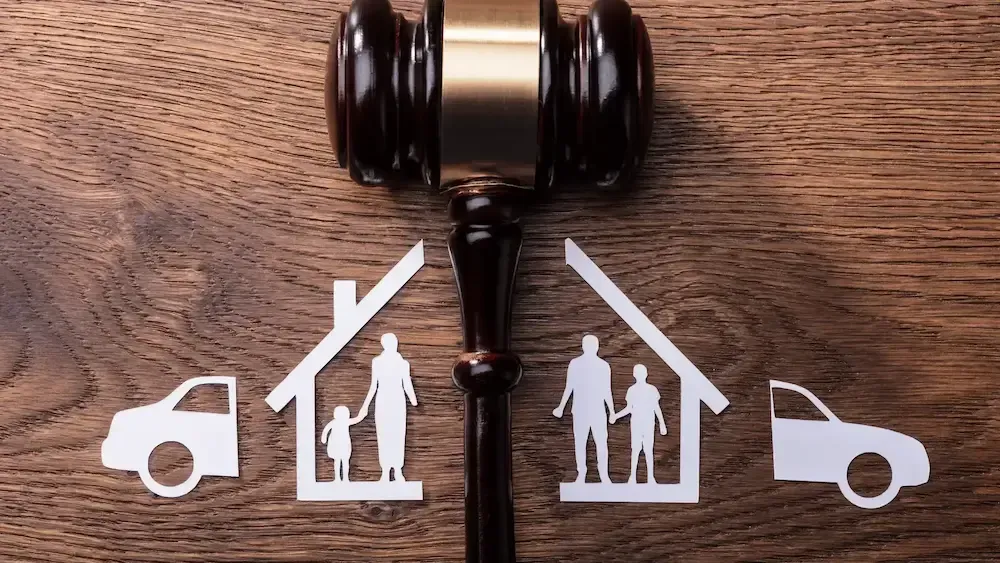What do you do with relationship property? Your path to a fresh start
The breakdown of a relationship is incredibly stressful for all parties involved, but when you own a property, it has the potential to be a nightmare. Aside from the emotional and logistical turmoil, often the biggest source of contention is what happens to the family home and assets after splitting up.
Any couple in New Zealand has three years after the date of separation to divide relationship property either through a Separation Agreement or an application through the Family Court. It sounds a long time, but the time is needed if there are disputes and negotiation is required.
What are the steps that need to be taken when you separate?
Your first priority is always to make sure you and your children are safe. If you have experienced family violence, feel unsafe or have been threatened, you should consider applying for a Protection Order as a matter of urgency. Remember, not all family violence is physical.
Even if you are on great terms with you ex and have amicably split, it is advisable to get agreements formalised by a lawyer. You do not know what the future looks like or whether their or your sentiments may change.
The next step is to contact a lawyer
What legal advice do I need?
The greatest mistake people make when going through a relationship breakdown is not seeking quality legal advice early on. You only have one opportunity to go through this process to secure your financial future, so it’s critical to get it right first time.

Nobody likes spending money on legal fees; however, you cannot place a value on peace of mind knowing a permanent line has been drawn in the sand. Depending on your circumstances, you may need to draw on advice from different specialist areas of law. They could include:
· Family Lawyers
A Family Lawyer provides essential support and guidance during the emotional and legal complexities of relationship breakdowns. Helping navigate child custody arrangements, financial support, and spousal maintenance, a family lawyer ensures all parties' rights and obligations are clearly defined and legally upheld. In the context of relationship property, a Family Lawyer ensures the division of assets are fair and comply with the Family Proceedings Act 1980, providing the foundation for a fresh start.
· Relationship Property Lawyer
A Relationship Property Lawyer specialises in the division of assets under the Property (Relationships) Act 1976. Their expertise streamlines the process by reducing conflict and facilitating a smoother transition post-separation. With expert advice on identifying and valuing relationship property and negotiating settlements it’s possible to achieve an equitable division of property and assets without emotions clouding judgement. A Relationship Property Lawyer represents you to protect you and your interests while complying with legal standards.
· Tax Lawyer
Depending how intertwined your finances are with your ex-partner, a Tax Lawyer can provide crucial advice on the tax implications of splitting up and the division of relationship property. They identify potential tax liabilities and benefits associated with property transfers, asset sales, and settlements to optimise financial outcomes, minimise tax burdens and avoid unexpected tax issues.
· Residential Property or Conveyancing Lawyer
A Property or Conveyancing Lawyer handles the legal aspects of transferring ownership of property. With respect to relationship property, they assist in selling shared properties, transferring titles, and managing mortgage arrangements. This helps you to manage the practicalities of moving on from a shared home and secure new housing.

What happens with a jointly owned property after splitting up?
When there is any transfer of ownership of a property, a Conveyancing Lawyer ensures all legal requirements are met during the sale or purchase process, but you may also need to consult a Relationship Property Lawyer to navigate any valuation complexities or negotiate on your behalf should there be a need.
Whether it’s the end of a marriage, civil union or de facto relationship, when it comes to a shared property, there are three options to consider:
- Purchasing your ex-partner’s interest
- Selling your interest to your ex-partner
- Selling the property together
No matter which option you are initially considering, to ensure a smooth, compliant, and legally sound process it is essential to seek independent advice from a Family Lawyer and get them to draft a Separation Agreement.
Why do you need a Separation Agreement before you sell a house?
A Separation Agreement is a legally binding document to confirm the division of assets and liabilities of the relationship. A Separation Agreement ensures neither party can make a relationship property claim against the other in the future. It takes away any ambiguity and outlines expectations of what is expected in terms of conduct and cooperation. A Separation Agreement serves as the foundation for the transfer process.
· Securing finance to buy your ex-partner’s interest
If you are buying out your ex’s share in the property, securing finance is likely high on your agenda. Arranging funds through a bank or other financial institution is typically expedited when a copy of a Separation Agreement is provided – the bank evaluates your financial situation in relation to the terms outlined in the agreement.
· Selling your share of the property to your ex-partner
Sometimes it is mutually beneficial to sell your interest to your ex-partner, but with this comes the need for open and constructive communication. The Separation Agreement will be the base document for the transaction. It also protects your interests and establishes the framework for the property transfer.
· Selling the property together
Sometimes the most appropriate course of action is to sell the property together. The Separation Agreement clarifies the distribution of the sale proceeds, safeguards your rights and establishes clear responsibilities and obligations of both parties throughout the process.
Getting to the stage of settlement can be complex, but by seeking legal advice from a Family Lawyer early in the process means you can proceed with confidence, safe in the knowledge you have a legal team serving your best interests. Contact us today for a confidential no-obligation chat, click here or call 03 379 1740 to see if we can assist you.






